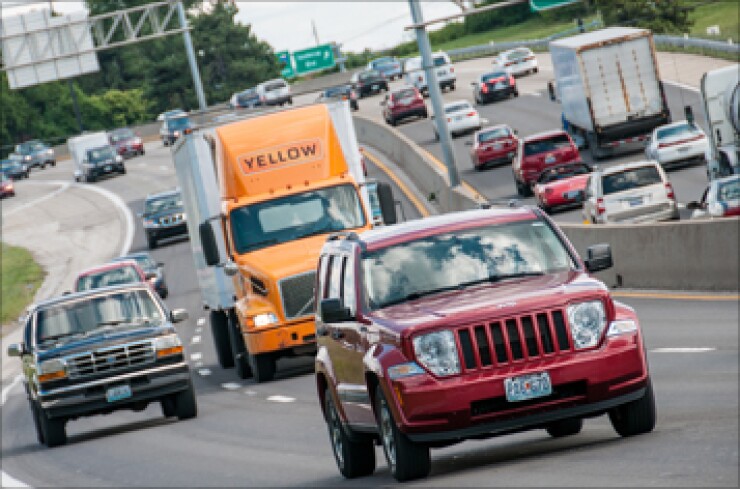
DALLAS — Gasoline tax increases that went into effect July 1 in six states did little to raise pump prices, as retail gas prices fell in four of the states, giving hope to advocates of a higher federal gasoline tax.
The AAA found in a national survey that Nebraska motorists paid an additional 0.3 cents per gallon when the state tax went up 0.5 cents last week while those in Idaho paid an additional 0.2 cents when their state gasoline tax rose by 7 cents per gallon.
Gasoline pump prices in the others — Maryland, Rhode Island, Georgia, and Vermont — were lower on July 1 than on June 30.
Pump prices went up on July 2 by 3.1 cents per gallon in Idaho and 0.7 cents in Georgia, but fell slightly in Nebraska, Maryland, Vermont, and Rhode Island, despite a nationwide average increase of 0.4 cents, AAA said.
Seven states have increased their fuels taxes in 2015. Washington State was the latest, with a measure for a phased increase in the gasoline and diesel tax of 11.9 cents per gallon.
California's Legislature is meeting in a special session on transportation funding that includes a plan by Democratic lawmakers to raise the state's gasoline tax by 10 cents per gallon.
Nearly 40 state legislatures have considered ways to raise additional revenue for transportation projects in 2015 while Congress has failed to raise the federal tax of 18.4 cents per gallon and 24.4 cents for diesel for more than 20 years, said Peter Ruane, president of the American Road and Transportation Builders Association.
Ruane said Rep. Paul Ryan, R-Wis., chairman of the tax-writing House Ways and Means Committee, made a mistake last month when he said the panel would not consider raising the federal gasoline tax to resolve the $16 billion per year shortfall in the Highway Trust Fund.
Increasing federal fuel taxes by 15 cents per gallon would eliminate the revenue gap in the HTF, which provides 52% of annual state capital transportation expenditures, Ruane said. The higher taxes would generate $401 billion for transportation over six years to give state and local officials time to plan for lengthy, expensive projects, he said.
The current two-month extension of the HTF, which did not require a transfer from the general fund, will expire July 31. A report in June from the Congressional Budget Office said keeping the HTF solvent through the end of fiscal 2015 would need a $3 billion transfer while keeping the fund operating through December would require another $8 billion.
An increased gasoline tax could quickly bring the HTF into balance, Ruane said.
"Treasury could begin collecting additional revenue from a rate adjustment as soon as Congress and the president give it statutory authority to do so," Ruane said in a recent letter to Ryan and Rep. Sander Levin, D-Mich., the ranking Democrat on the committee.
"It could even begin on Aug. 1, 2015," he said. "It would be like flipping a switch."
An analysis by ARTBA of five states that raised their gasoline taxes in 2013 found that 22% of the increase showed up at the pump immediately with gasoline prices reflecting only a third of the tax increase after 30 days. Profit margins and the price of oil are more important factors in the price of gasoline than the tax rate, said Alison Premo Black, chief economist at the transportation advocacy group.
"In fact, the impact of a 15 cent increase in the federal gas tax would likely be 'lost' in the week-to-week price fluctuation that has occurred at the gas pump for the last 10 years," Black said.
AAA said July 7 that motorists over the three-day weekend paid the lowest price at the pump for Independence Day travel since 2010, with gasoline down by 90 cents per gallon compared to the 2014 holiday.





